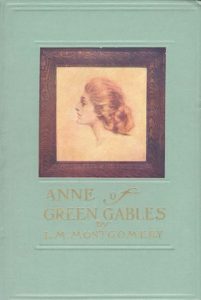
 Literature Guides
Literature Guides
Major Themes of Anne of Green Gables
Important Themes
Imagination and Intellect
Anne is an extremely imaginative young girl. In many ways she is completely driven by her imagination to the exclusion of all else. She makes up imaginary friends and idealizes notions of romance and love. Yet, just beneath this world of imagination and wonder is the budding intellect which will propel her through her young adulthood.
The novel aligns these two aspects of the human mind as complementary even as the novel shows us that an over-reliance on one faulty over the other can be detrimental. Diana, for example, seems to by purely imaginative to the degree that she is really a girl of fancy rather than intellect. Anne is able to transform her imagination into a lively intellectual life. Diana can only assume the roles prescribed for her because she cannot see anything beyond them.
Gilbert is a young man driven by intelligence, but it his ability to tap into imagination which makes it possible for him to reach out to Anne in the end of the book. The novel would seem to favor the idea that a healthy balance of imagination and intellect are the features of a valuable and healthy human mind.
Kinship
While the relationship between Anne and her adopted family would seem to automatically complicate traditional ideas of kinship, in fact the entire novel follows this theme. Anne becomes a dutiful and in many ways an ideal “daughter” to Matthew and Marilla, making a tremendous sacrifice in the end for the sake of Marilla.
She does this with many characters in the book. Her relationships with her teacher, Diana, and even Gilbert in the end are filial in nature. The book forces us to see kinship in ways that do not rely on blood ties. Kinship in Anne of Green Gables is developed out of devotion and love. People are on the level of kin because they are worthy of such a designation.
Education
This is a crucial theme for the book. Anne comes to Green Gables “unformed,” as it were. She is a girl of her nature rather than education. As a result, she resists formal rules and manners. As she adapts to her world, she is educated in the ways of young women in the social world even as she forces the world around her to accept her on her terms.
Later, it is education which leads Anne toward independence and autonomy. Her relationship with Miss Stacy is one of a master and protégé as well as a filial relationship. Miss Stacy sees the intellectual promise in Anne and encourages her pursue the life of the mind. It is, in the end, Anne’s decision to devote herself to her adopted family, and she makes this decision and a fully independent woman.



